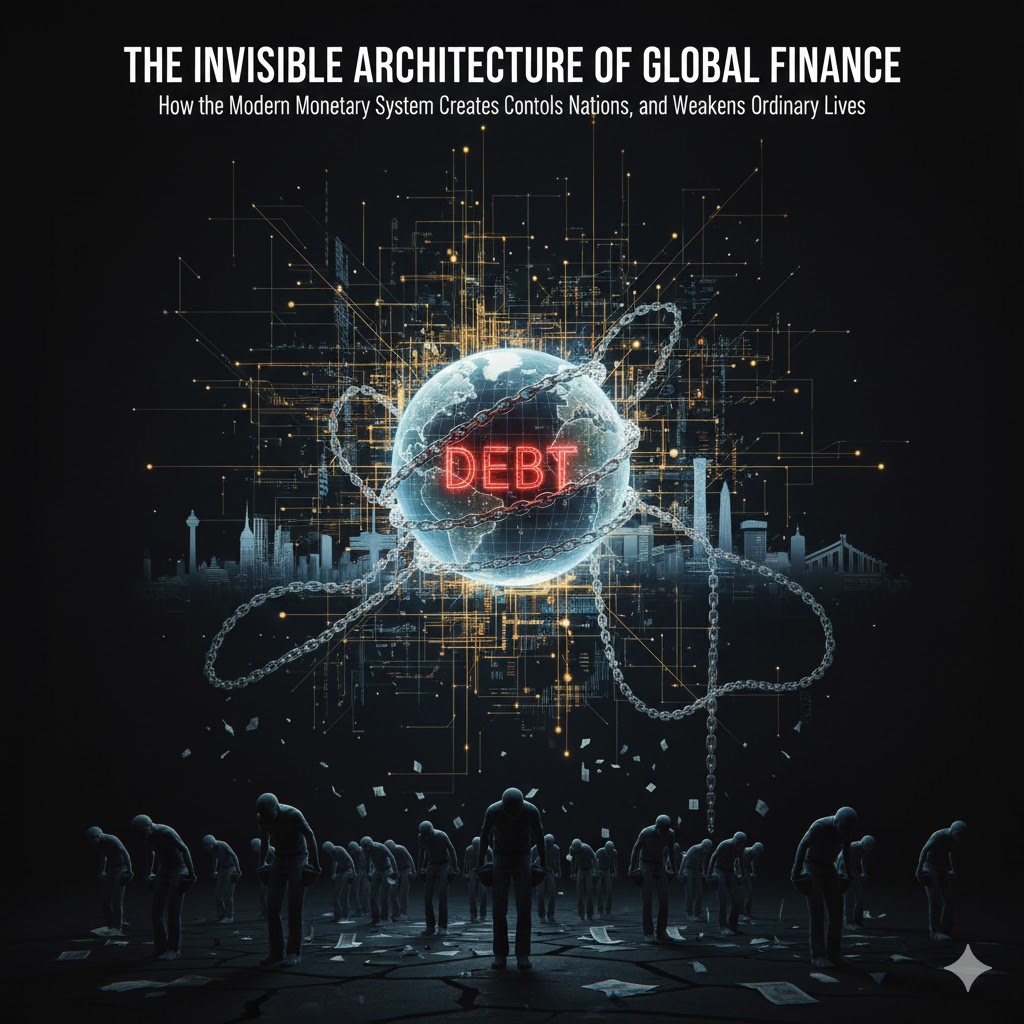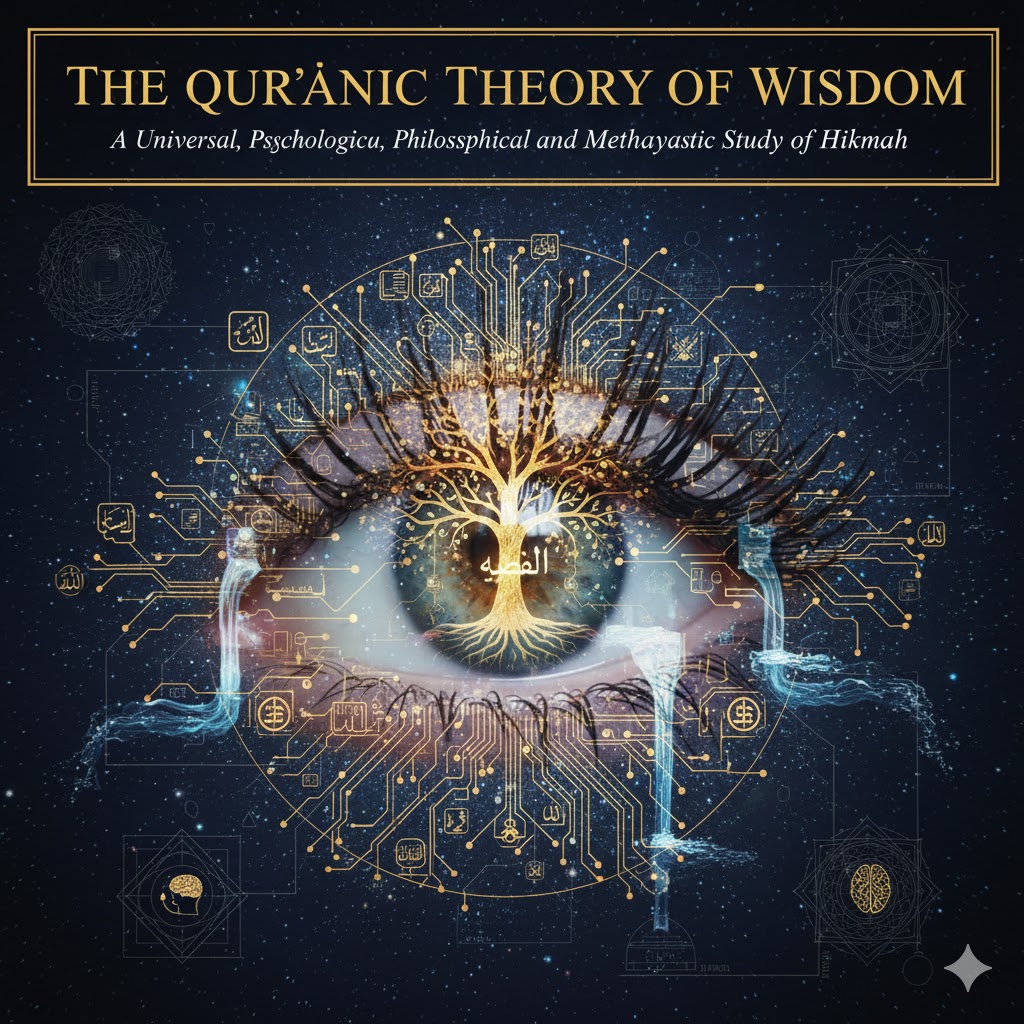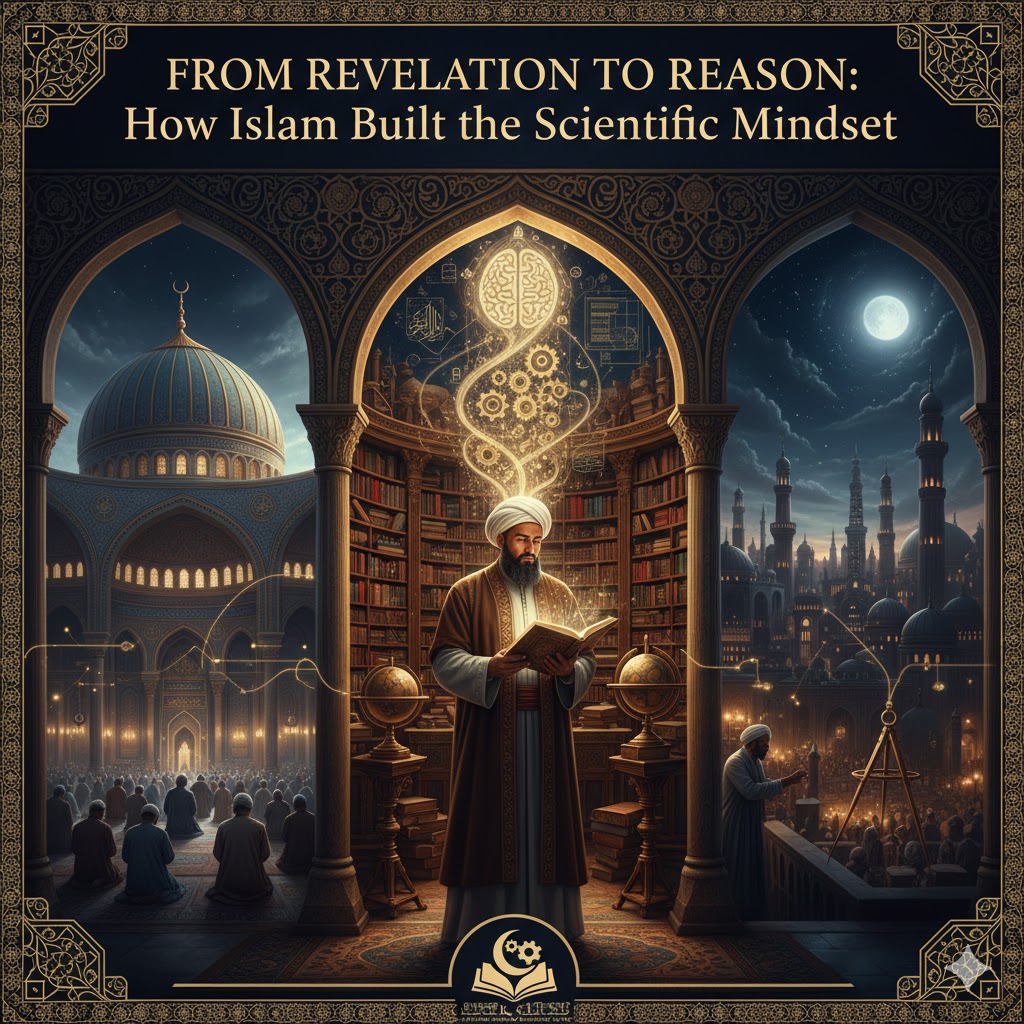Introduction to Surah Fatir
Surah Fatir (The Originator) is the 35th chapter of the Quran, and it focuses on the divine power and sovereignty of Allah in the creation and management of the universe. The name “Fatir” refers to Allah as the “Originator” or “Creator,” reflecting His supreme ability to create everything from nothing. This Surah highlights the endless manifestations of Allah’s creative power, drawing attention to the natural world as a sign of His existence, mercy, and wisdom. It reminds believers of the signs that Allah has placed in nature and urges them to be grateful and submissive to Him.
The Surah addresses the themes of creation, the consequences of ingratitude, and the ongoing presence of divine mercy and justice. It reinforces the idea that everything in existence is part of Allah’s divine plan, emphasizing His control over the skies, earth, and all that exists within them. Additionally, Surah Fatir underscores the relationship between Allah and humanity, where His mercy is abundant but is conditional upon humans recognizing His grace and submitting to His will.
By acknowledging Allah’s creations, such as the intricate systems of nature, the Surah encourages believers to reflect on their Creator and to express gratitude for the blessings bestowed upon them. It calls on mankind to be aware of their dependence on Allah and reminds them that ingratitude leads to divine wrath, while sincere gratitude leads to increased blessings.
This Surah serves as both a reminder of Allah’s immense power and a call to worship Him in sincerity, recognizing His sovereignty in every aspect of life, from the grandest cosmic events to the smallest details of creation. It reinforces the message that Allah is the Originator of all things, and it is only through Him that the world and everything in it continues to exist. Through its powerful language, Surah Fatir motivates believers to submit to Allah’s will and appreciate the endless blessings bestowed upon them.
Themes and Subjects in Surah Fatir
Themes and Subjects in Surah Fatir
Surah Fatir, also known as “The Originator,” delves into several deep theological, philosophical, and moral themes. It reflects on the supreme creative power of Allah, the consequences of ingratitude, the balance of justice and mercy, and the importance of recognizing the signs of Allah in creation. Below, we explore the major themes and subjects of this Surah with verse references:
1.1. The Creative Power of Allah
The Surah begins by establishing the power of Allah as the Creator of the heavens and the earth. Allah is described as the Originator who created everything from nothing and continues to sustain and shape the universe.
Verse 1:
“Praise be to Allah, the Originator of the heavens and the earth…” (35:1)
This verse highlights that everything in the universe — from the majestic heavens to the earth beneath our feet — is a result of Allah’s creative will. It emphasizes Allah’s omnipotence and creative authority. This theme recurs throughout the Surah, inviting readers to contemplate the marvelous creation of the world and recognize it as a sign of the Creator’s existence.
1.2. The Signs in Creation
Surah Fatir encourages believers to reflect on the signs Allah has placed in creation, which bear witness to His power, mercy, and wisdom. These signs include the alternation of night and day, the rain that nourishes the earth, and the diversity of life on earth.
Verse 27-28:
“Do you not see that Allah sends down rain from the sky, and We produce thereby fruits of various colors…” (35:27-28)
These verses serve as a powerful reminder that the natural world around us — the water cycle, the growth of plants, and the diverse creatures in existence — is part of Allah’s design. The earth’s biodiversity, the air we breathe, and the cycle of the seasons all point to the intricacy and majesty of Allah’s creation. These signs should prompt us to recognize Allah’s presence in the world and lead to gratitude and worship.
1.3. Ingratitude and Its Consequences
Another important theme of Surah Fatir is the stark contrast between the ungratefulness of some humans and the mercy and generosity of Allah. While Allah continuously provides for His creation, many fail to acknowledge His blessings or are ungrateful for them. The Surah emphasizes that ingratitude brings harm and leads to spiritual loss.
Verse 3:
“O mankind, remember the favor of Allah upon you. Is there any creator other than Allah who provides for you from the heaven and earth?” (35:3)
This verse invites mankind to reflect on the endless blessings Allah has granted, urging people to recognize that all the sustenance they receive, whether from the earth or from the sky, is a gift from their Creator. Failure to recognize this truth leads to ingratitude, which invites Allah’s displeasure.
1.4. Allah’s Mercy and Justice
While Surah Fatir highlights the consequences of ingratitude, it also underscores Allah’s infinite mercy and fairness. Allah’s justice ensures that everyone receives what they deserve, whether in terms of reward for good deeds or punishment for evil.
Verse 4:
“And if they deny you, [O Muhammad], already were messengers denied before you…” (35:4)
This verse reassures the Prophet Muhammad (peace be upon him) and the believers that the rejection of divine messengers is not a new phenomenon. Throughout history, many messengers were denied and faced opposition, yet Allah’s justice prevails in the end. His mercy is extended to those who repent, but His justice ensures that no one escapes the consequences of their actions.
1.5. Human Dependency on Allah
The Surah emphasizes that humans are utterly dependent on Allah for everything they possess. Every facet of existence — from sustenance to knowledge — is granted by Allah. Humans are reminded of their vulnerability and reliance on the Creator.
Verse 15:
“O mankind, you are those in need of Allah, while Allah is the Self-Sufficient, Praiseworthy.” (35:15)
This verse reinforces human dependency on Allah, acknowledging that despite all human achievements, people are in need of Allah’s mercy and provisions at every moment of their lives. Allah is Self-Sufficient and does not need anyone, while humans must always turn to Him for guidance, sustenance, and mercy.
1.6. The Role of the Angels
The Surah also highlights the role of angels in the execution of Allah’s will. Angels are depicted as beings who carry out Allah’s commands, from bringing down rain to administering the affairs of creation.
Verse 1:
“Praise be to Allah, the Originator of the heavens and the earth, Who made angels messengers with wings…” (35:1)
This reference to the angels emphasizes that Allah’s creation is not limited to what is visible to human eyes; there are invisible beings such as angels who play an essential role in the functioning of the universe. It also invites people to reflect on the unseen aspects of reality and recognize that the created world is far beyond human understanding.
1.7. Human Free Will and Accountability
Surah Fatir asserts that humans have been granted free will to choose their path, but with this comes the responsibility for their actions. While Allah provides guidance, individuals are accountable for their choices, and the consequences of those choices are theirs to bear.
Verse 45:
“If Allah were to punish people for what they earned, He would not leave on the surface of the earth a single living creature…” (35:45)
This verse highlights Allah’s mercy in delaying punishment, as He gives people time to repent and change their ways. However, Allah’s justice is ultimately inevitable, and people will be held accountable for their deeds.
2.Scientific and Historical Reflections in Surah Fatir
Surah Fatir, named after “The Originator,” highlights several profound reflections about the universe, human existence, and the natural world. While the primary aim of the Surah is to emphasize Allah’s creative power and sovereignty, it also touches upon themes that align with modern scientific discoveries and historical reflections. The Quran, in its timeless wisdom, presents knowledge that resonates with both the seen and unseen worlds. Below is an in-depth exploration of the scientific and historical reflections found in Surah Fatir, supported by verses from the Surah and their relevance in the context of modern science and historical understanding.
2.1. The Creation of the Heavens and Earth
One of the most notable scientific reflections in Surah Fatir is Allah’s creation of the heavens and the earth. This is presented in the opening verses of the Surah, where Allah is described as the Originator and Creator of all things in the universe. The Surah highlights the precision, harmony, and intricacy involved in the creation process.
Verse 1:
“Praise be to Allah, the Originator of the heavens and the earth, Who made angels messengers with wings, two, three, or four. He increases in creation what He wills. Indeed, Allah is over all things competent.” (35:1)
This verse is a reminder of the vastness of the universe and Allah’s role as the Creator of all. In recent scientific discoveries, the origin of the universe has been a subject of intense exploration, from the Big Bang theory to the expanding universe. The Quran, however, takes a broader perspective by highlighting the fundamental truth that Allah is the ultimate originator of all creation. Whether it’s galaxies, stars, or planets, everything comes into being by Allah’s command.
2.2. The Creation of Life and Biological Diversity
The Surah makes several references to the creation of life on Earth and the diversity of creatures that inhabit the planet. Allah’s command to create life is an act that extends beyond the physical aspects of biology, encompassing all living things, from the smallest organisms to the largest creatures.
Verse 27-28:
“Do you not see that Allah sends down rain from the sky, and We produce thereby fruits of various colors, and in the mountains are streaks of white and red, of various shades and some extremely black?” (35:27-28)
This verse not only speaks of the beauty and diversity of the natural world but also aligns with what modern science has discovered about the diversity of life and ecosystems. The creation of different types of fruits, plants, and animals, as well as the diversity of colors, is a phenomenon studied in biology and genetics. The verse can also be interpreted in light of the discovery of the vast variety of species on Earth and the biological processes that enable such diversity.
The mention of “streaks of white and red, of various shades, and some extremely black” also calls attention to geological formations, mountain ranges, and the colors of the earth’s surface. Modern science has unveiled the intricate processes of plate tectonics and erosion that shape the earth’s topography, which are a reminder of the intricacy of creation.
2.3. The Water Cycle and the Role of Rain
Another important scientific reflection in Surah Fatir is the description of the water cycle, which modern science has only fully understood in recent centuries. In the Quran, the water cycle is presented as part of Allah’s creative power and a sign for human beings to reflect upon.
Verse 9:
“And He it is Who sends the winds as heralds of glad tidings, going before His mercy. And We send down pure water from the sky.” (35:9)
This verse highlights the wind’s role in transporting moisture and bringing rain, a key element in the water cycle. Scientific understanding of the water cycle has shown how wind carries moisture from bodies of water, condenses it in the form of clouds, and ultimately releases it as rain, which nourishes the earth. The rainwater is described as “pure,” emphasizing the divine wisdom in the processes that sustain life on Earth.
The correlation between the Quranic description and modern meteorological understanding is profound. Just as the wind acts as a carrier for moisture, facilitating the process of rainfall, modern science confirms the intricate mechanisms that govern this cycle — from evaporation to condensation and precipitation.
2.4. The Role of Angels and Divine Commands
Surah Fatir also touches on the unseen, which includes the role of angels as messengers and agents of divine commands. The concept of unseen beings, such as angels, who have specific roles in creation and the universe, provides a unique angle on the relationship between the spiritual and physical realms.
Verse 1:
“Praise be to Allah, the Originator of the heavens and the earth, Who made angels messengers with wings, two, three, or four. He increases in creation what He wills.” (35:1)
While angels are not directly observable in the physical realm, their existence is a fundamental belief in Islam. They are part of the unseen world, working in tandem with the natural world to execute Allah’s commands. The mention of angels with wings and their varying forms could also be seen as a metaphorical reference to the diverse forces and energies that act in the universe.
From a scientific standpoint, the nature of angels and other metaphysical realities cannot be empirically verified, but their mention in the Quran draws attention to the unseen forces that regulate and guide the physical universe. It emphasizes the idea that the physical world is governed by both visible and invisible mechanisms — a view that complements some aspects of quantum physics, where unseen forces (such as energy fields) can influence physical matter.
2.5. The Role of Human Free Will and Accountability
A key theme of Surah Fatir is the idea of human free will and responsibility. Allah has created human beings with the ability to choose between right and wrong, and this free will carries with it the weight of accountability in the Hereafter.
Verse 45:
“If Allah were to punish people for what they earned, He would not leave on the surface of the earth a single living creature…” (35:45)
This verse reflects the mercy and patience of Allah, as He allows humans the time to repent and correct their ways. The concept of free will is critical in understanding human behavior and morality. Scientific disciplines such as psychology and neuroscience explore the complexities of human decision-making, behavior, and consciousness, shedding light on how choices are made. However, the Quran stresses the ultimate accountability that transcends the physical world, where every choice has eternal consequences.
Moral and Spiritual Lessons in Surah Fatir
- Gratitude for Divine Blessings
- The Surah emphasizes the importance of recognizing Allah’s gifts and being grateful for His countless blessings. Gratitude is not only a form of worship but also an essential part of developing a spiritual connection with Allah.
- Verse 3: “O mankind, remember the favor of Allah upon you. Is there any creator other than Allah who provides for you from the heaven and the earth?”
- This verse calls for self-reflection, urging individuals to acknowledge the vast favors they enjoy and to thank Allah for them.
- The Consequences of Ingratitude
- The Surah also warns about the dire consequences of ingratitude and disbelief. It is essential to remember that Allah’s mercy and justice are intertwined, and turning away from Him leads to ruin.
- Verse 40: “Do not those who disbelieve see that the heavens and the earth were a closed-up mass, then We opened them out? And We made from water every living thing. Will they not then believe?”
- This verse is a powerful reminder of the creation of the universe and life itself, which is a testimony to Allah’s power. Rejecting this evidence is an act of ingratitude that carries consequences.
- Trust in Allah’s Sovereignty
- Allah’s sovereignty over all things is a central theme of this Surah. The Surah calls people to trust in the divine plan and submit to Allah, for He is the ultimate controller of all affairs.
- Verse 15: “O mankind, you are those in need of Allah, while Allah is the Self-Sufficient, the Praiseworthy.”
- This verse calls upon individuals to recognize their dependence on Allah for sustenance, guidance, and mercy.
Conclusion
Surah Fatir serves as a profound reminder of the Creator’s power, the divine mercy, and the importance of gratitude and obedience. It calls humans to reflect on the signs of Allah in the universe, to acknowledge His sovereignty, and to be grateful for the countless blessings bestowed upon them. The Surah also highlights the importance of recognizing the Creator’s role in the natural world, from the origin of the universe to the water cycle, illustrating the deep connection between spiritual and scientific understandings.
By examining these themes and connecting them to both scientific reflections and moral teachings, Surah Fatir offers timeless guidance. It urges individuals to acknowledge Allah’s mercy, follow His guidance, and remain steadfast in their faith, lest they fall into ingratitude and face the consequences in the hereafter.










